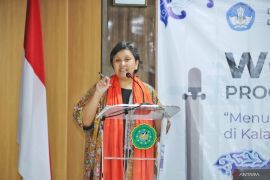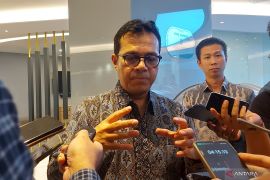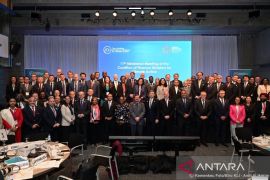To this end, Hanif said education must be oriented to the needs of the labor market, or be "demand driven," to reduce the mismatch between the needs of the industrial world and skilled workers in Indonesia.
"In my opinion, a total change is needed in our education system, so that the orientation is `demand driven.` Hence, what does an industry need and what does the business world need. Now, that is what we give to our children, because if not so, it will not connect," Hanif remarked at the Industrial Relations Competency Seminar for Polytechnic Graduates in the Era of Industrial Revolution 4.0, Jakarta, Monday.
At the seminar themed "Industrial Revolution 4.0 Indonesia Must Be Ready For Special Opportunities and Challenges in the Field of Employment," Hanif stated that the "mismatch" was quite large, at around 63 percent, meaning that out of 10 people, the qualifications of only three to four people matched with the needs of the business world.
"Indeed, one of our challenges is `mismatch` and being `under qualified,`" he noted.
The workforce can be under qualified when he/she does not have the right qualifications in accordance with the field of education he/she is pursuing, especially, if it is associated with the needs of the labor market.
"For instance, let us say there is a S1 student, who is a computer graduate but can`t get a computer job. The degree is just a bachelor`s degree, but the competency is not at the undergraduate level. That is what happens, so our higher education system must be improved," he stated.
Hanif noted that the trend of "mismatch" certainly decreased due to ongoing breakthroughs in education and vocational training, so the extent of discrepancy can eventually be reduced.
"We do not want double investment. For instance, in `double investment,` people have gone to school and trained again, it means `double.` It should be that if the school is already vocational, then after graduating from it, the person starts working. Hence, the school is vocational, so after being trained again, it becomes a `double investment.` It is practically not effective," he explained.
Reporting by Martha Herlinawati S
Editing by Eliswan, Suharto
Reporter: antara
Editor: Heru Purwanto
Copyright © ANTARA 2018












